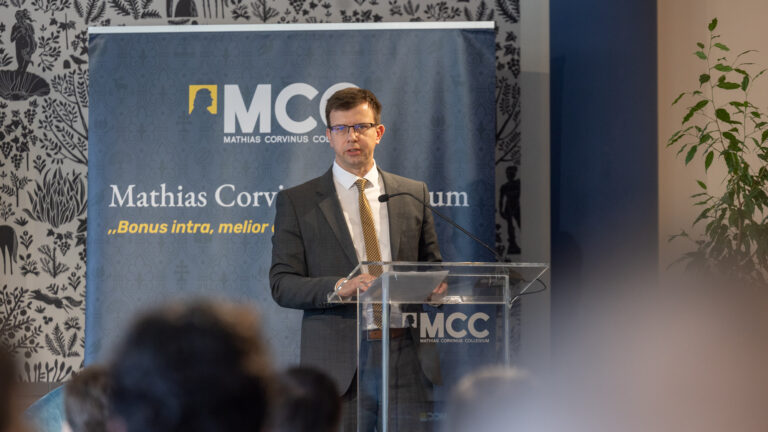Although the story was already broadly known, it is still surprising that no article or study has ever examined the 1973 criminal case against György Gadó (1930)—a former SZDSZ and later independent member of parliament, who at the time was still a ‘simple Zionist activist’—which was launched for distributing Zionist flyers.
The origin of the story is that between 19 and 29 April 1973, flyers were found in several locations in Budapest: in a room of the Hungarian–Soviet Friendship Society headquarters at 45 Gorkij Avenue in District VII; on the sidewalk at Blaha Lujza Square in District VIII, next to the Rókus Chapel; and slipped behind the glass wall of a tobacco shop at the intersection of Rákóczi Road and Múzeum Boulevard. The flyers read: ‘Enough with the slanders! LONG LIVE 25-YEAR-OLD ISRAEL!’
At that point, the flyers could not yet have been connected to Israel’s 1973 Yom Kippur War. However, between May and October, the distribution of flyers intensified (‘The press is lying! LONG LIVE ISRAEL!’), and later, during the days of the war in October, graffiti also appeared.
According to an April report by Subdivision III-D of the Budapest Police Headquarters (BRFK), ‘considering the social danger posed by the flyers, identifying the perpetrator(s) is required,’ and thus a case file was opened under the code name ‘Courier’ (‘Kézbesítő’).[1]
The police carried out a profiling of the perpetrator and, based on his routes, concluded that he likely lived and worked in District V. They also determined that he was ‘a person who disagrees with the party and government’s policy of condemning Israel and supporting the Arab peoples, and who holds extremist Semitic views’—not a very perceptive remark.
At that point, however, they were still investigating another individual, whose phone was tapped—but, unsurprisingly, this led nowhere.
Finally, on 14 October 1973, a police officer named Dezső Takács received a civilian report from two ‘taxi inspectors’, stating that someone was writing ‘Long live Israel!’ on a wooden fence near the taxi station on Népköztársaság Road (now Andrássy Avenue). Officer Takács began following the individual and caught him just as he was about to board a tram.
‘Someone was writing “Long live Israel!” on a wooden fence’
He checked the man’s identification and determined that it was György Gadó. He then filed an official report, charging him with the crime of incitement. It later emerged that Gadó had also painted other slogans, such as ‘Long live the fighting Israel!’ and ‘More tanks for the Arabs, fewer apartments for Hungarians!’
It was established that Gadó worked as a freelance translator and indeed lived in District V. He had been a Communist party member from 1946 until 1968, when he was removed from the party at his own request. During a search of his home, police found the ‘cut-out template’, a rubber stamp matching the design, ink, and concluded that he had been engaged in this activity since 1969, when Stars of David first began appearing on walls around the city.
During his interrogation, Gadó did not deny that he had written the texts. He explained his actions by saying he supported the Israelis and that, ‘as a result of the current Arab–Israeli war, he had formed the opinion that Israel’s very existence was at stake. These thoughts compelled him to write the above messages.’ As he put it: ‘I can say that as early as 1967, I began to reflect on how wrong it was that Hungarians held negative views of Israel.’
He was also asked to explain the meaning of his slogans. ‘What I meant—and what I intended to express with the slogan in question—was that the military aid provided to the Arabs generally ties up financial resources, and this is also related to the standard of living. Of course, there are many factors involved.’
‘Israel’s very existence was at stake’
He claimed he originally obtained the rubber stamp to entertain his children, and only later got the idea to use it for reproducing messages.
Investigators also questioned him about his trips to the West and his Western correspondents. In the course of the investigation, they interrogated Gadó’s acquaintances and relatives, including the caretaker of his building and his ex-wife.
All this was apparently not enough, so while Gadó was in pre-trial detention, the authorities assigned a prison informant (part of the so-called ‘cell network’) to spy on him. According to the agent’s report, Gadó ‘entertained thoughts of emigrating or escaping abroad’ and was ‘not a supporter of the regime’. As the target (Gadó) let slip, he had already attended a Zionist camp near Komló as a young man in 1946.
The reports included statements such as: ‘He considers the Western or Israeli-style “democracy” to be the true one, and the multi-party systems to be ideal—even if they involve right- or left-wing deviations—because it is precisely the existence of the extremes that guarantee a just, democratic, and free social order. He sees the West’s economic superiority and far higher standard of living as unmatchable, which no socialist system can ever achieve, especially not under the kind of state capitalism and exploitative economic policies that prevail here.’
According to the agent, the subject ‘wanted to be a martyr’.
In a November 1973 summary report, the Budapest Police Headquarters stated that ‘he did not regret his actions, steadfastly upheld his Zionist political stance, and sought to justify it with a distorted and one-sided ideology.’ As recorded in the report, ‘a prison informant was used in this case. The agents’ reports were assessed as valuable and, through appropriate methods of manipulation, were used during the interrogations. These reports revealed that beyond his Zionist convictions, the accused harboured complete opposition to our socialist social order and the policies of the party and government, expressing hostile views.’
‘The subject “wanted to be a martyr”’
The indictment was submitted by the Metropolitan Chief Prosecutor’s Office on 29 December 1973. According to it, Gadó—who had been held in pre-trial detention since 14 October—committed the felony of incitement (ie, mass-producing leaflets) and also took certain publications home without permission from his previous workplace, the Central Statistical Office, thereby committing a breach of confidentiality.
For these actions, the Pest Central District Court sentenced him on 14 February 1974 to one year and four months in prison, with the time spent in pre-trial detention since 14 October of the previous year included in his sentence. On 7 May, the Metropolitan Court reduced the sentence on appeal to one year.
Gadó’s case fits into a broader context: he was not the only one who protested—through means considered ‘illegal’—against the Hungarian government’s anti-Israel policies at the time. He remained under state security surveillance for years afterwards, monitored under the cover name ‘Salamon’. To quote just one sentence from a later report: one 1983 file described the ‘target’ as having an ‘anti-Communist and extreme Zionist disposition’. Altogether, the above seems to confirm the self-definition Gadó gave in a 1993 interview: ‘I’m a Jew who does not bow down and does not beg to be heard, but states his opinion without hesitation.’ All of this is worth recalling today, at a time when Israel is once again fighting a life-or-death battle, and once again the statement holds true: ‘the press is lying’.
[1] For all quotes on the investigation against Gadó, see: Állambiztonsági Szolgálatok Történeti Levéltára (ÁBSZTL), 3.1.5. O-15419. and ÁBSZTL, 3.1.9. V-159696.
Related articles:







